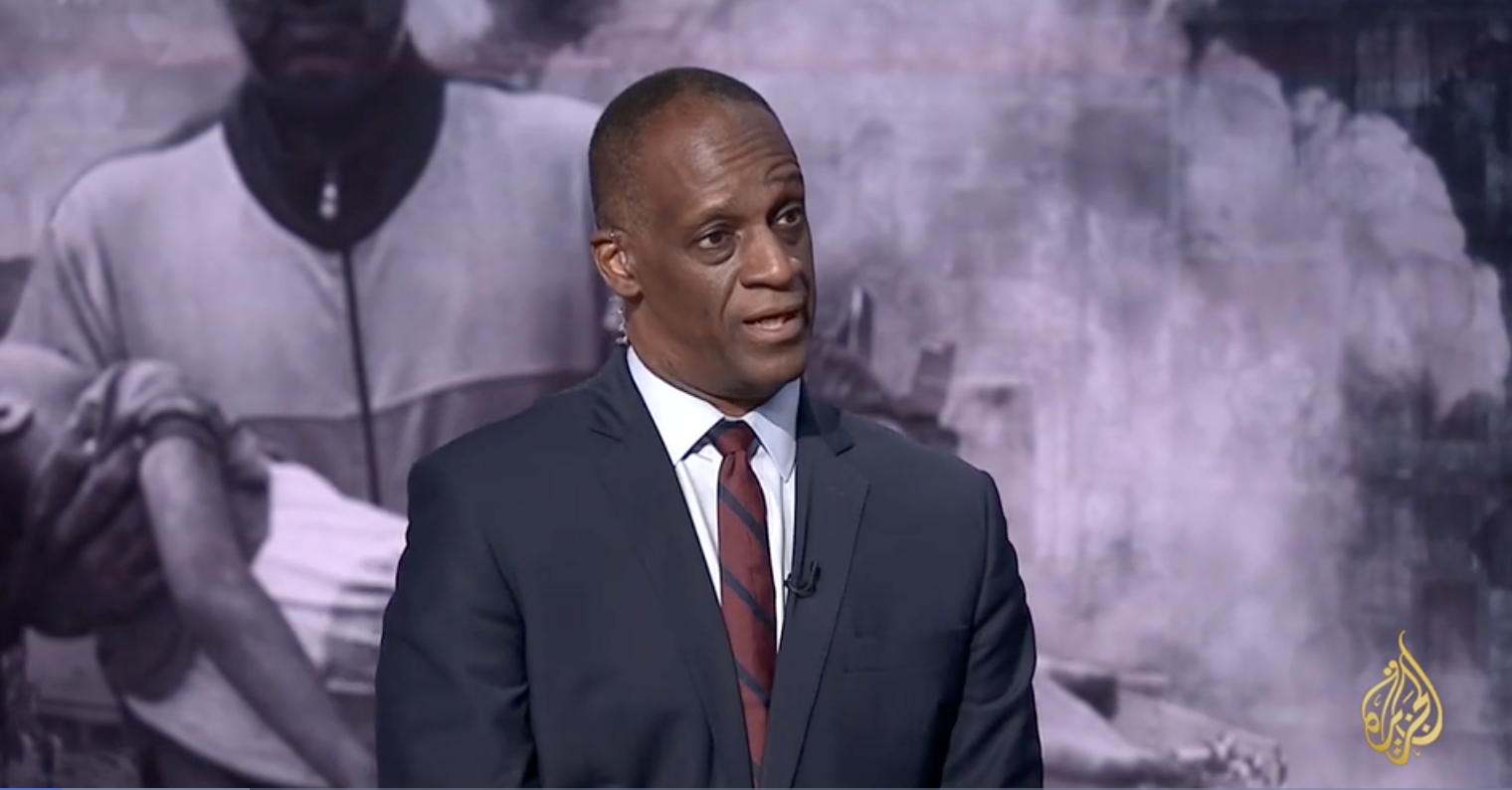The powerful Gulf mediator has been at the forefront of de-escalation efforts in Gaza since the beginning of the brutal Israeli onslaught on October 7.
In an interview with Al Jazeera on Wednesday, Timmy Davis, United States envoy to Qatar, highlighted Qatar’s crucial role in attempting to stop the ongoing war in Gaza and in the pursuit of an independent Palestinian state.
Davis said that the U.S. and its Arab allies, including Qatar, continue to work to end the war in the Gaza Strip and establish a Palestinian state.
The interview comes as a Cairo meeting between Qatar’s prime minister, Israel’s Mossad director, the U.S. CIA chief and the director of Egypt’s general intelligence service concluded on Tuesday evening. The meeting aimed to advance a captive-release deal and cease violence in Gaza.
An anonymous Egyptian diplomatic source described the atmosphere of the discussions to Arabic Al-Hadath as positive.
While Davis had no new updates on the recent discussion in Cairo, he underscored the mediators’ commitment to resolving the deadlock between Hamas and Israel. He expressed cautious optimism among the mediators, who believe that if both parties are willing to engage in dialogue, it could lead to a comprehensive solution and an irreversible plan for in establishing a Palestinian state and ensuring a secure future for both sides.
“Diplomacy requires face-to-face contact [and] clear understanding [from all parties involved], so my optimism is based on the fact that we continue to have conversations and convene in the hope of finding a path towards peace,” he told Al Jazeera.
Davis also praised Qatar’s pivotal role, particularly its instrumental role in brokering a temporary humanitarian truce between Hamas and Israel back in November.
The powerful Gulf mediator has been at the forefront of de-escalation efforts in Gaza since the beginning of the brutal Israeli onslaught on October 7, 2023, which has killed over 28,576 Palestinians , 70% of whom are women and children.
Doha’s successful mediation a few months ago, alongside Cairo, resulted in a temporary truce in Gaza that lasted between November 24 and December 1. The pause saw the release of at least 110 Israeli and foreign captives from Gaza as well as 240 Palestinian women and children from Israeli prisons.
The American diplomat highlighted Qatar’s consistent support for the Palestinian cause, providing humanitarian aid and actively working towards securing food, jobs, and decent living conditions for Palestinian families.
He stressed that the Qatari enthusiasm for making sure the Palestinians are taken care of has carried on after October 7 through mediation efforts to release the captives, including Americans.
He also said that Qatar provided a platform for Israel and Hamas to be able to exchange proposals and ideas in order to reach a solution to this war in Gaza, stressing that its role has been “indispensable.”
Qatar, a major non-NATO U.S. ally, has hosted the Hamas political office since 2012 at Washington’s request to establish a channel of communication with the group. The move has since enabled Doha to successfully mediate between the conflicting parties on several occasions.
Commenting on the escalating tensions in the Red Sea, Davis emphasised Washington’s push to secure maritime navigation, particularly addressing the impact of Houthi activities on global markets.
He outlined Washington’s efforts to prevent the Houthis from targeting ships without facing consequences.
Since Israel waged its genocidal war on Gaza, Yemen’s Houthis have been targeting commercial shipping in the region that they deem to have connections to Israel or are en route to Israeli ports. This action is part of a movement started by the group in solidarity with Palestine, forcing shippers to avoid one of the world’s most crucial trade routes.
The alternative route around the Cape of Good Hope, at the southern tip of Africa, has appended more than 6,500 km and nearly half a month of sailing time to each journey, leading to increased shipping costs.
As regional tensions escalated, the Houthis expanded their attacks, signalling intentions to target American and British ships. In response, the U.S. and the UK have launched airstrikes against suspected Houthi locations.
Until now, Houthi operations have primarily concentrated on the narrow Bab el-Mandeb strait, which connects the Gulf of Aden to the Red Sea.
This vital waterway sees about 50 ships pass through it daily, navigating to and from the Suez Canal — a key route for global maritime trade.
The Houthi group asserts it is acting in solidarity with the Palestinians and insists that their attacks on vessels aim to pressure Israel to end its genocide in Gaza and ease restrictions on humanitarian aid supplies intended for Palestinians.







